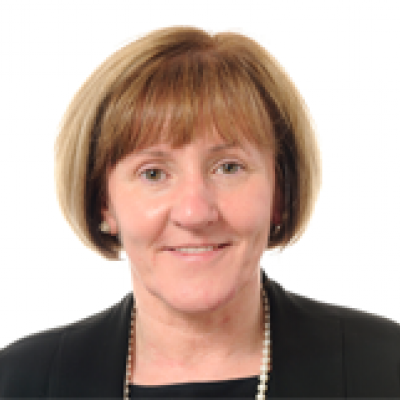Turning today’s challenges into tomorrow’s opportunities on Orkney
28 September 2016

I arrived in Orkney on a cold winter night in 2010. My journey across the sea had been particularly restless and choppy, much like the challenges that lay ahead in my new role as Chief Executive at NHS Orkney. I was presented with an old and tired rural general hospital in Kirkwall, high numbers of medical vacancies in primary and hospital care, limited diagnostic and IT capability, and a savings target of just under 9%.
I’d like to tell you the story of my journey since then, and how we are turning the challenges of providing health care in such an isolated place into positive opportunities for the population of Orkney.
Let me start by giving you some context.
NHS Orkney is an Island Board, seven miles off the northern tip of Scotland. We are an archipelago of some 70 or so islands, of which 17 are inhabited. The population is just under 22,000 (set to increase by 6.8% by 2035) with around 80% of people living on the main island, Mainland. Populations on our smaller Isles vary from one person to just over 600 people.
As you can imagine, providing health care in such a beautiful but remote part of the world is eventful, with two days never the same. Our population is small, but spread out, and the range of clinical presentations varies in numbers and complexity, just like any other health and care system. Our geography and climate, along with the need to travel between Mainland and our outer Isles, also add layers of complexity to how we deliver routine care, not to mention care in an emergency.
However the people of Orkney have a wonderful resilience, and a ‘can do’ attitude that leaves you humbled by the lengths people are willing to go to be there when you need them. The camaraderie is very special.
I quickly came to see that all these challenges could become opportunities if we embraced an improvement agenda with a real sense of purpose. We knew this would take honesty, courage, and a real passion to deliver on our commitments to both the people of Orkney and our staff.
So what have we done to date? Looking back to 2010, I am struck by just how far we have come.
We have invested in new technology, including Orkney’s first CT (computerised tomography) scanner. Having diagnostic equipment like this is hugely significant for the people we care for. For example, as a nurse I was deeply troubled when I first arrived to find anyone presenting with stroke had to be air lifted to Aberdeen. Some never returned due to their medical condition, and often died without family around them. We are now able to diagnose and treat many more people on Orkney.
Technology is a key part of our everyday life, with an increasing number of outpatient clinics supported by video conferencing as we try and bring even more services back home. Spending less on air travel is another incentive.
Building on our consultant-led hospital model is helping us to achieve this goal. We can now provide gynaecology and enhanced chemotherapy on the islands. Our planned replacement hospital will open in 2019, supporting even more technology-enabled care. We’re looking at how we can invite specialists to join us virtually in A&E, theatre, and outpatient settings, to help with clinical decision making. And on our Isles, we’re using IT to help patients to video conference into our local hospital, rather than having to travel.
In primary and community care we’re focusing on models that help people stay in their own homes. Integration with social care is well embedded in Orkney, so building on an in-reach/outreach workforce model feels like the right thing to do. By this I mean using the same staff to provide care both in and out of hospital. We’re exploring how staff can rotate through our hospital and community and vice versa to build capacity, capability and resilience in our workforce.
So what about vacancies? Orkney, like many rural boards, struggles to recruit using traditional employment contracts. We have to be creative. We’re currently testing a two week on/off island way of working for doctors and nurses, and it seems to be working for us.
When our GPs and advanced nurse practitioners are on duty on the Isles, they are the 24/7 response, meaning we can offer round the clock care to local people. This gives us a robust clinical response in an emergency, supported by air ambulance and help from the local Isle communities, who set up landing lights, drive ambulances, and act as community responders to our often lone practitioners.
In a recent conversation with a member of staff they said, ‘to change things you have to crack some eggs’ – the inference being that I have cracked a few in my time. Humour and heart are a key part of who we are in NHS Orkney.
I look back with tremendous pride at what people have achieved to date. Orkney is providing a test bed for innovation as we seek out creative ways to address the challenges we face. Going forward I am optimistic about our next chapters and how they might unfold as part of our story.
Cathie Cowan is Chief Executive at NHS Orkney and a Health Foundation Generation Q Fellow.
Work with us
We look for talented and passionate individuals as everyone at the Health Foundation has an important role to play.
View current vacanciesThe Q community
Q is an initiative connecting people with improvement expertise across the UK.
Find out more

